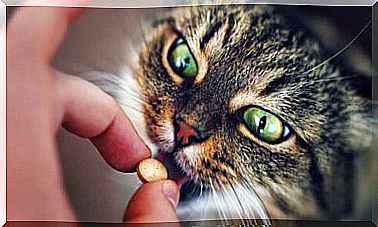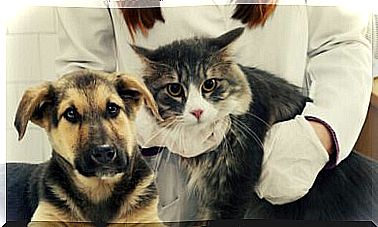Intestinal Parasites In Cats: Treatment And Prevention
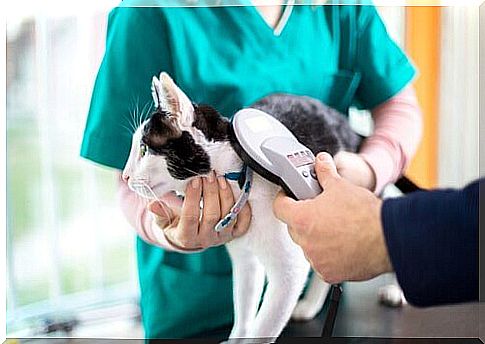
As many as 45% of the feline population is affected by gastrointestinal parasites at some point in their life. With these incidence levels, it is essential to learn to distinguish the symptoms that your pets may be exhibiting, so that you can prevent and prevent them from being severely affected by such infections. Let’s try to understand more in the following article.
How to know if your cat is infected
Intestinal parasites strike as quietly as they are effective. They usually act in harmony with their unsuspecting “host” on whom they depend for survival. Normally, when your cat starts showing symptoms, it is a sign that there has already been a disruption in its physiological balance .
A massive reproduction of pests can threaten the animal’s life, and the symptoms that your cat could experience may vary depending on the type of parasite that infects. Here is a list of the most common ones:
- In young cats, the so-called “developmental block”, that is, an arrest in the normal growth of a puppy due to the presence of parasites that monopolize their source of nutrients.
- Rickets.
- Anemia.
- Vomiting, diarrhea and gastrointestinal disturbances.
- Loss of luster of the coat.
- Belly swollen and rounded.
- Dehydration.
These symptoms can weaken your cat and make him more susceptible to diseases caused by viruses or bacteria. Domestic cats are generally little exposed to parasites, as owners tend to take good care of their hygiene and will only have a greater risk of becoming infected in unhealthy environments or if they come into direct contact with the external environment.
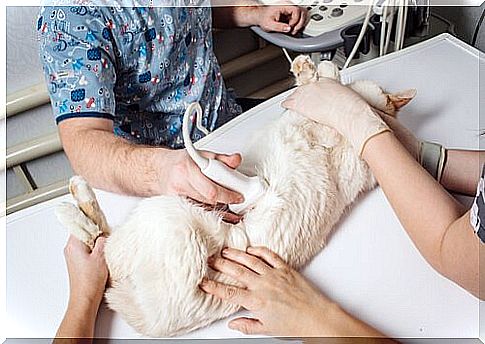
Types of parasites to avoid
The most common parasites, which you can detect in our cat’s feces, are worms. These can be round or flat. In the latter case, we would be talking about tapeworms.
Roundworms are the most common and are usually found in young cats. The types of rounded worms that most often affect the feline population are Toxocara cati and Toxocara leonina. The female of this type of worm can lay up to 300,000 eggs per day. They are usually found in the cat’s small intestine, which excretes eggs through feces.
The eggs of this type of worm will infect your pet’s environment and may affect other animals as well as people (zoonoses). These eggs resist high and low temperatures and retain their contagious capacity for five years.
Hookworms, also called hookworms ( Ancylostoma ), are less common than roundworms. However, they usually cause more harm to the animal, as they feed on blood and tissue through the intestinal wall and cause wounds that lead to blood loss and severe anemia. They usually spread through the skin or when ingested.
Among the tapeworms type, the most common is Dipylidium caninum or flea tapeworm. It is transmitted when the cat ingests fleas infested with the larvae of this parasite. This usually happens when the animal cleans its intimate areas, then licks the rest of the body.
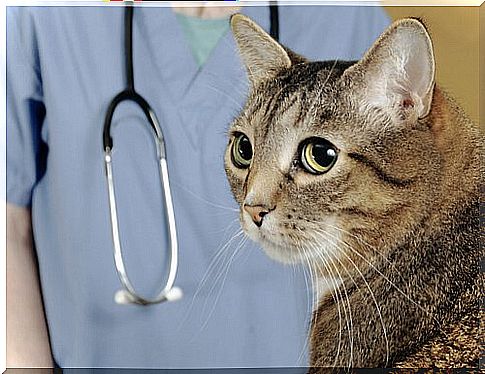
Cats infected with tapeworms usually show no symptoms, except perhaps a slight irritation in the anal region, caused by their eggs; it is therefore advisable to be careful to detect unusual behavior.
Treatment and prevention of intestinal parasites
These parasites can be treated with certain medications prescribed by the vet. One of the most used is piperazine , which frees the animal from round worms, but only those that already live in the intestine. Another common medicine is Pirantel Pamoate , which can be given to pregnant cats or even younger animals.
As for prevention, to avoid the appearance of parasites, the hygiene of the environment in which the animal lives is the most important factor to take into consideration. We recommend that you regularly disinfect the areas where your cat usually lives and is. Also examine the feces of your pets, from time to time, will give you important information about their health status. Without ever forgetting the visits to the vet for normal checks.



